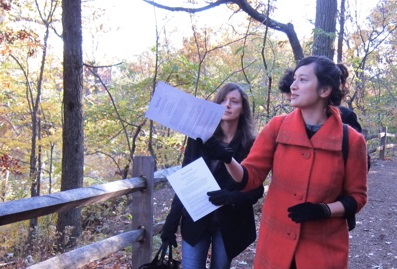Participants of Poem Forest in NY Botanical Garden
JON COTNER works at the intersection of writing and place. He’s always moving us towards the community-building potential of words, the way in which language draws us out of isolation and returns our awareness to shared spaces and how we interact with them.
